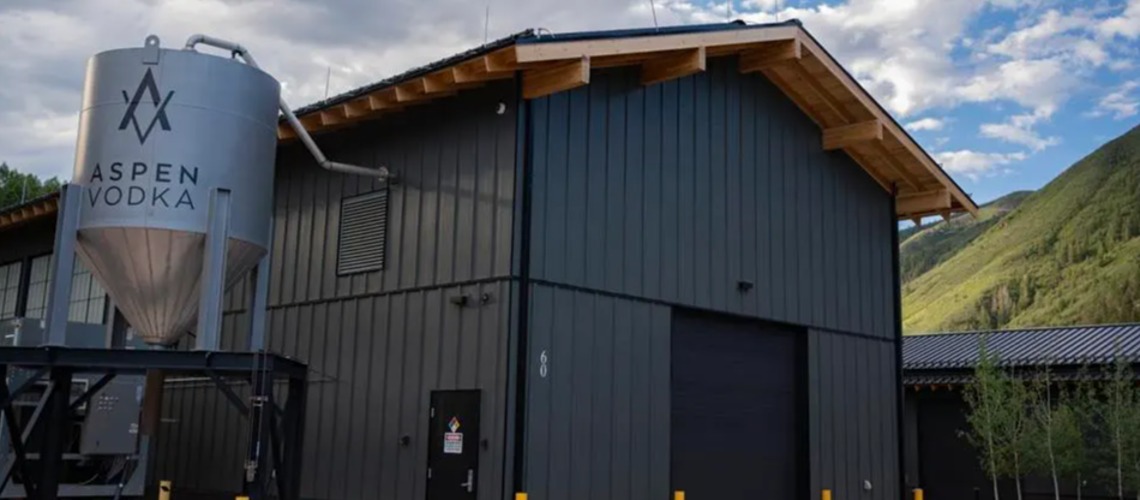Aspen Vodka Raises Bar For Sustainability: World's First Carbon-Negative Distillery Opens In Colorado

Aspen Vodka, a brand known for its Rocky Mountain-inspired spirit, has achieved a historic feat – becoming the world's largest carbon-negative distillery. The company recently opened its new 18,000-square-foot facility in Carbondale, Colorado, boasting a fully electric design and innovative technologies that not only minimize its environmental footprint but actively remove carbon dioxide from the atmosphere.
"We are incredibly proud to lead the industry with our ambitious and innovative environmental practices,” said Aspen Vodka founder Matthew Patel of the new certification. “Producing a luxury vodka with unrivaled quality, at the world's cleanest distillery sets a new benchmark for sustainability.”
The secret to Aspen Vodka's carbon-negative status lies in its commitment to renewable energy and pioneering water treatment. The distillery is entirely electric, eliminating reliance on fossil fuels for heat and power generation. Additionally, it utilizes on-site lithium-ion batteries for energy storage, ensuring smooth operation even during power outages – a feature crucial in maintaining consistent production.
Beyond energy efficiency, Aspen Vodka takes water conservation seriously. Their "Aquacycl BioElectrical Treatment Technology" is a game-changer. This system treats wastewater without generating carbon emissions and actually improves water quality. The treated water can even be used for irrigation, returning valuable resources to the Colorado River Basin.
This groundbreaking facility isn't just about environmental benefits; it's also a testament to sustainable design. The distillery achieved the prestigious LEEDv4 BD+C certification, the highest standard for building energy efficiency awarded by the U.S. Green Building Council. This signifies the building's commitment to reduced energy consumption, water usage, and a healthy indoor environment for employees.
Aspen Vodka's achievement sets a new benchmark for the spirits industry. As consumers become increasingly eco-conscious, this distillery paves the way for a more sustainable future for alcohol production.













